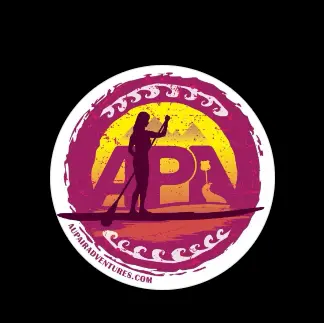In this article, we'll cover a number of topics. Here's the summary:
Daily Life of an Au Pair
- Main tasks: Childcare, light housekeeping, tutoring.
- Work hours and free time: Example of a typical schedule, importance of communication with family.
- Managing Difficulties: Tips for Resolving Conflicts, Understanding Expectations.
Daily life in the United States
Driving in the United States
- Driving differences: Adapting your driving to American rules (for example, turning right on red, speed limits, wide roads).
- Driver's License: Information on the validity of the international license or the need for an American license by state.
Eating habits
- Discover American food: Understanding American eating habits, often different in terms of quantity, meal style, and timing.
- Specifics of American cuisine: Discovering typical dishes and adapting to local ingredients. Possible need to buy specific European products at international grocery stores.
- Preferences and restrictions: Communicate your preferences, dietary restrictions, or personal requirements (such as gluten-free or vegetarian diets) with the host family.
Taxes in the United States
- Tax obligations of the au pair: Explanations on the responsibility to report au pair income in the United States.
- Resources for filing: Inquire with the agency or other au pairs, use online services, or receive support for filing.
- Plan for tax savings: Tips on budgeting to prepare for year-end tax payments.
Experiences
- rematch: Discuss the reasons that can lead to a rematch, the process, and how to manage the transition.
- the extension of stay: Explains the steps to extend your au pair year in the United States, with advice from former au pairs.
- Educational credits: explanation of mandatory educational credits, options for obtaining them, and examples of popular courses.
Bonus
- Package Shipping: How to Send Packages from the USA to France
Daily Life of an Au Pair
- Main tasks: Childcare, light housekeeping, tutoring support.
- Work hours and free time: Example of a typical schedule, importance of communication with family.
- Managing Difficulties: Tips for Resolving Conflicts, Understanding Expectations.
The main responsibilities of au pairs concern children. This includes preparing their breakfast, dressing them, getting them ready for school, making lunchboxes, accompanying and picking them up from school, playing with them, and organizing play activities. In the evening, we have to prepare dinner, give them a bath (bearing in mind that in the U.S., children are often not bathed every day, but rather once a week or as needed, even after sports), then put them to bed.
Household chores are limited to the children's things: washing their dishes (and yours), doing their laundry, tidying their rooms, the playroom and their belongings. Under no circumstances should you look after the parents', grandparents' or pets' belongings, unless an agreement has been reached, you are being paid for it, and you agree. Under no circumstances should the parents force you to look after the animals if you don't want to. For example, if the parents go on vacation without you and choose to leave the dog at home, they can't force you to look after it, nor can they count these days as days off deducted from your two weeks' vacation.
In addition, the family must either leave you a budget for shopping or fill the refrigerator before they leave. It's not your responsibility to pay for groceries when they leave you home alone on vacation.
The au pair's schedule varies according to each family's needs. Some families need help in the evenings until 9pm and at weekends, while others need a daytime presence with evenings and weekends free, or a few hours in the mornings and evenings.
---
In my first family, I had a fixed schedule: I worked 45 hours a week (the maximum allowed), with 9-hour days (limit of 10 hours a day). I had all my weekends off, although families can, as an au pair contract, ask to work every weekend, but they have to leave one free every month (which I don't recommend, as it limits travel possibilities and can damage the experience).
My schedule was from 8:30 a.m. to 5:30 p.m., with responsibilities such as breakfast, dressing and activities with the children. At 11 a.m. we had lunch, as the eldest child went to school from 12:45 to 3:30 p.m. (equivalent to grande section in France). The school was a 15-minute walk or a 5-minute drive away. After dropping off the eldest, I looked after the youngest, who went to Spanish school twice a week (Tuesday and Thursday, from 9 a.m. to 12 p.m.). The different schedules for each child made for intense days, and the 45-hour week became exhausting. Managing children requires constant vigilance and can be mentally tiring. My hosts liked to make me work the maximum hours allowed. For example, when my two children went to school on Thursday mornings from 9 a.m. to 12 p.m., I was on break, but in the evening they liked to go out and make me work until 9 p.m. to make up for the fact that I hadn't worked in the morning.
In my second family, my schedule is lighter, at around 30 hours a week. On Mondays, Wednesdays and Fridays, I start at 6.30 a.m. to 8.30 a.m. to take the youngest to school, while the parents take the two older children to the bus. Then I pick up the youngest at 12pm, we have lunch, and he naps until 2:30pm. I pick up the older children at the bus stop and finish at 4 p.m. On Tuesdays and Thursdays, the youngest doesn't go to school, and I look after him from 6.30am to 4pm. Fortunately, he has a nap and the grandparents come often, which makes the day pleasant and quick.
When the kids don't have school, I plan days out with an au pair friend who has two children close in age to mine: we organize outings to museums and the library, and have lunch together, which makes for a very full day!
---
Being an au pair sometimes involves dealing with disagreements or misunderstandings with the host family. The key to resolving conflicts is to establish open, respectful communication. From the outset, it's important to clarify expectations: ask specific questions about schedules, tasks and boundaries. If a problem arises, take the time to discuss it calmly and express your feelings without judgment. Remain attentive to the family's needs, and be prepared to be flexible. Establishing regular check-in times can also help prevent tension by ensuring that everyone is happy and comfortable in their roles. In the event of persistent conflict, you can also enlist the help of your agency, which can act as mediator and guide you towards a solution. We have a dedicated local LCC (Local Childcare Consultant) who is on hand to help with any problems or questions. You'll be part of a WhatsApp group with other au pairs, where you'll receive information about upcoming meetings (organized get-togethers with other au pairs in the group for activities). If you're experiencing difficulties with the family and don't dare discuss them directly with them, you can turn to your LCC for advice or help. Some LCCs are more sympathetic to families, as they are often considered a priority. Personally, I've never had a problem with my LCC, so I can't testify to that, but friends have had experiences where the LCC always made excuses for families despite their worries.

Daily life in the United States
Driving in the United States
- Driving differences: Adapting your driving to American rules (for example, turning right on red, speed limits, wide roads).
- Driver's License: Information on the validity of the international license or the need for a U.S. license by state
Eating habits
- Discover American food: Understanding American eating habits, often different in terms of quantity, meal style, and timing.
- Specificities of American cuisine: Discover typical dishes and adapt to local ingredients. Possible need to buy specific European products at international grocery stores.
- Preferences and restrictions: Communicate your preferences, dietary restrictions, or personal requirements (such as gluten-free or vegetarian diets) with the host family.
Taxes in the United States
- Tax obligations of the au pair: Explanations on the responsibility to report au pair income in the United States.
- Resources for filing: Inquire with the agency or other au pairs, use online services, or receive support for filing.
- Plan for tax savings: Tips on budgeting to prepare for year-end tax payments.
Driving in the USA:
---
During my first year in the U.S., I didn't take the U.S. permit, as my international permit was valid for one year in my home state of Pennsylvania. However, for my second year, I had to take the American permit, and I'm going to share my experience with you, as the process varies from state to state.
In New Mexico, I had to pass three tests, but nothing too complicated. The first test is for drink-driving. It's only available in English, but we can bring notes and documents to answer the questions. The second test, on the Highway Code, can be taken in French, and the questions are fairly straightforward. Finally, the last test consists of a 10-minute driving test with an examiner.
My hosts paid for my license, but if the family doesn't cover these costs, it's a pretty hefty budget. For my part, I paid $25 out of pocket for the online alcohol test, which I took on my phone, along with all the necessary documents. At the exam, my hosts paid $40 for the alcohol test, then another $40 for the driving test. If you fail, you have to take the test again, which costs $40 each time. Then they paid $60 for the driving test, and finally, $75 to get my license. In all, the total cost was $240 for a license valid for 4 years. And I'm French, so I had the easiest procedure!
---
When it comes to driving in the U.S., be prepared for some surprising behavior. Americans often overtake on the right or left, and they don't pull over to the right when they're not driving. There is no right-of-way here, which can be an advantage. Roads often have red lights and stop signs, but there are few traffic circles, and the few that do exist are poorly controlled by drivers. In short, Americans often drive selfishly: in a multiple lane, they don't hesitate to pull out in front of you without blinking or respecting the safety distance.
A special note: you can turn right at red lights, provided there is no prohibition sign and no cars are coming from the left. If you hesitate, you can wait for the green light, which is what I did at first to be on the safe side. But if you get honked at, it means you can go! And be prepared to hear horns, especially if the light has been green for a few seconds and you haven't moved. It's quite common, and you have to get used to these little "incidents."
There are indeed speed limits in the United States, but they are often not well respected, especially compared to France, because there are few speed cameras. The only possible "cameras" are police officers stationed on the side of the road with radar binoculars. However, they only stop drivers who are clearly speeding. For example, I have encountered police several times while driving 10 km/h over the limit on a highway, and they never stopped me. You can also find a few fixed speed cameras in cities, but that is quite rare. You risk a fine if you exceed the speed limit by more than 10 miles. For example, if the limit is 55 miles per hour, driving at 64 miles is generally tolerated, but at 70 miles, you will receive a fine. That’s why many Americans drive fast.
On the other hand, there are times when the speed limits are strictly enforced, especially near schools. The limit is often 15 miles per hour, and it is imperative to adhere to it. Everyone does, as the fines are severe if you get caught: I heard about an au pair who paid $250 for exceeding the 15-mile limit in front of a school.
It is also crucial to pay attention to yellow school buses. When a bus stops, it activates its flashing lights and a "STOP" sign extends from the side of the bus. In this case, you must stop behind the bus and not pass it. Passing a stopped school bus is subject to a heavy fine. When I was starting out, I forgot this rule once, because in France you can pass school buses. I was lucky not to receive a fine, but be vigilant !
Ultimately, driving in the United States is quite easy to understand. The roads, parking spaces, and drive-thrus are all designed for cars, especially for larger vehicles like pickups, as small cars like Twingos don't really exist here! You'll quickly get used to it, even though it takes a little time at first.
In the photo, it's the car I had with my former host family. It's one of the smallest cars in the United States, often used by young drivers.

Eating habits :
The American cuisine doesn't have the best gastronomic reputation, and this is sometimes understandable. Even though fast food, hamburgers, and hot dogs are everywhere, they are fewer in number than one might imagine. However, the food is really different from that in France. For example, the apples here are ultra-shiny, and the first family I stayed with kept tomatoes for a month without them rotting! Additionally, I noticed that I could eat fewer fruits and vegetables without feeling significant effects on my digestion, whereas in France, that would have been unthinkable.
The meat is also very affordable here, but the taste is not the same: lamb, for example, has a much less pronounced flavor. When it comes to sweets, I haven't found any candies that I like as much as in France. KitKats, Twix, and Mars don't taste the same at all, and it's a mystery to me! As for iced tea, it's impossible to find an equivalent to the Ice Tea from back home: here, it's either super sweet or not sweet at all.
Dairy products are also more expensive: about $9 for a pack of 4 yogurts. And cheese... that's a whole topic! Goat cheese, for example, is nothing like what we know: here, it's often a creamy paste without the strong flavor of real goat cheese. As for charcuterie, I also felt a bit lost. Salami doesn't really exist, or it's soft and tasteless, and Bayonne ham is so salty that it becomes almost inedible.
In conclusion, if you are coming to the United States, I advise you to bring some truly French products in your luggage, like your favorite sweets and snacks, so you won't miss the flavors from home too much! And eat some bread, cheese, real charcuterie, and good French dishes before you leave !

The cereal aisle

The chips aisle

The beverage aisle

The shining apples

Brie 453g
$9.78

"Croissants"

"Croissants confiture"

Boeuf "Rump Roast" 450g
$17.47
The Americans have different meal habits. For example, Americans often eat savory for breakfast: eggs, bacon, toast, etc. Personally, I really like this type of meal, so it doesn't bother me. However, I know that some French people prefer a sweet breakfast with their cereal! Additionally, some do not have a proper lunch or just snack. Also, expect to have dinner very early. My former hosts would have dinner between 6:30 PM and 7:30 PM, but my current family eats between 5 PM and 6 PM, which means there is no more snack at 4 PM !
Each state has its culinary specialty. For example, in Philadelphia, it's the Philly Cheese Steak: a sandwich made of cheddar, ground steak, onions, cream, and green peppers. In Albuquerque, the chili pepper is in the spotlight. I'm sharing two photos found on the internet to illustrate these local specialties.
When becoming an au pair, it is essential to communicate your dietary preferences and restrictions to the host family from the very first exchanges. These discussions help avoid misunderstandings and ensure a good integration into the family's eating routine. For example, if you have specific requirements, such as a gluten-free diet, vegetarianism, or food allergies, it is important to inform the family so they can organize accordingly and know if they are willing to meet these needs.
American families often have eating habits that may differ from what you are used to, both in terms of daily meals and the types of foods consumed. By addressing your needs from the start, you can also adjust your expectations. For example, you might discover interesting alternatives or products that you hadn't considered in your own diet.
Feel free to offer to help with meal preparation to contribute and add a touch of your own habits or recipes. It’s a great way to share your culture while respecting everyone’s preferences.
Taxes in the United States for Au Pairs :
As an au pair in the United States, it is important to understand your tax obligations. Although you are here for a cultural experience, you have the responsibility to report the income you earn as an au pair. Indeed, even if the amount may seem modest, the Internal Revenue Service (IRS) considers that au pairs must report their earnings and potentially pay taxes at the end of the year.
Resources for filing your declaration
Fortunately, you are not alone in managing this process. Most au pair agencies provide information and guides to help with the filing process. You can also consult other au pairs who have been through it, or use online services like TurboTax or H&R Block that simplify the procedures. Additionally, your LCC will support you, and you can even ask your host parents for help.
Plan for savings for taxess
Since the amount of taxes owed depends on your total income, (For a year, we need to pay about $1000 if your hosts report $200 per week) it is wise to set aside a little each week ($20) in anticipation of this potential expense. By reserving a small portion of your earnings each week, you can avoid any financial surprises when it comes time to file. Basic budgeting will help you feel at ease at the end of the year while fully enjoying your stay in the United States.
Experiences :
- rematch: Discuss the reasons that can lead to a rematch, the process, and how to manage the transition.
- the extension of stay: Explains the steps to extend your au pair year in the United States, with advice from former au pairs.
- Educational credits: explanation of mandatory educational credits, options for obtaining them, and examples of popular courses.
The Rematch: What to Do If It Doesn't Work Out with Your Host Family ?
The rematch is a term used to refer to the change of host family during your stay as an au pair. Although the experience with a host family is generally positive, it can happen that the situation does not meet your expectations or that difficulties arise. Fortunately, many au pair agencies, such as Cultural Care or AuPairCare, offer a solution in case of a rematch.
Why do a rematch ?
There are several reasons why a rematch may be necessary. For example, you might encounter communication issues, differences in expectations, or a lack of cultural compatibility. Sometimes, personal difficulties can also affect the adjustment. In such cases, it is important to act quickly to prevent the situation from becoming too uncomfortable.
The rematch process
The rematch process generally begins with a discussion with your agency. They will help you assess the situation and determine if a rematch is the best option. If you and your host family agree, the agency will put your profile online and families will then be able to see it, and you can start having other interviews.
During the rematch period, you continue to live with your current host family while searching for a new family. Sometimes, in the case of a rematch due to a dangerous situation, you may be accommodated in a hotel (with costs covered by the agency). Most of the time, however, you will be hosted by an available LCC (Local Coordinator) who can temporarily take you in. You have two weeks to find a new family. Sometimes agencies may allow an additional week to find one.
In some cases, the agency may offer a return ticket to your home country if no new family is found within a certain timeframe, although this varies from agency to agency.
I know that the rematch can be scary and that many au pairs prefer to stay in an uncomfortable situation rather than leave. However, this can ruin your experience, which could be amazing! Two weeks may seem short, but many families are looking for an au pair, and you will definitely find yours! Keep in mind that you are entitled to up to 4 rematches, which gives you several chances to find the family that suits you.
Take your courage in both hands, ask for a rematch, and go in search of YOUR host family, the one that will make you happy and allow you to fully enjoy this experience!
Tips to Avoid a Rematch
To avoid a rematch, it is crucial to choose your family carefully before leaving. Take the time to have several interviews and ask important questions about the daily routine, tasks, and expectations. Good communication from the start is essential to avoid misunderstandings.
If you experience difficulties once you are on site, it is important not to wait too long before discussing it with your agency. They can often intervene quickly to resolve minor issues before they become reasons for a rematch.
Example of what can happen:
The extension
The extension as an au pair is an opportunity that allows you to extend your stay in the United States after your first year. However, there are some rules to follow. First of all, during the extension period, you cannot leave the U.S. territory, unless you are going to Mexico or Canada, as these two countries are exceptions.
Attention: during your first year, you can travel anywhere in the United States and even abroad, such as to France or Brazil. However, in the two months leading up to the end of your year, it is not advisable to leave the U.S. territory, as you risk not being able to return.
Regarding extension fees, at Cultural Care (CC), the cost is $400, but this amount may sometimes be covered by the host family, depending on the agreement with them. It is therefore important to discuss this point with your hosts before starting the extension process.
One of the major differences from the first year is that, for the extension, you have more freedom in choosing the state where you want to live. You can therefore select a place that particularly interests you, which gives you more options to tailor the experience to your personal preferences, such as the climate, culture, or activities available in that state. However, you can extend with your family from your first year.
Moreover, extending your stay can be a great opportunity to deepen your connection with American culture, further improve your English skills, and explore another region of the United States. You’ll also be able to continue enjoying the benefits of the au pair program, while having more freedom in choosing your host family and environment.
Finally, don’t forget that extending your stay needs to be approved by your agency, and there are some administrative steps to follow to maintain your au pair status during this additional time. It’s important to prepare well and complete all the necessary steps to ensure your extension goes smoothly. For example, you need to complete your 6 credits or 72 hours of classes, which I’ll explain just below.
Educational credits
As an au pair, one of the important aspects to consider during your stay in the United States is earning educational credits. These credits are essential to complete your au pair experience and must be validated throughout your program. Indeed, it is mandatory to complete 6 credits, which is equivalent to 72 hours of classes, during your year. These credits can be earned through various options, such as online courses, class weekends, or university credits.
How to obtain them
- Class Weekends: Many agencies, such as ClassroomAuPair or Au Pair Weekend, offer special weekend training sessions for au pairs. These sessions allow you to earn educational credits while meeting other au pairs and sharing experiences. However, it's important to note that some of these weekends only provide 3 credits, which means you'll need to find other ways to complete the required 6 credits. Class weekends can be organized in several popular destinations across the United States, such as New York City, Boston, Miami, San Francisco, Texas, Alaska, Puerto Rico, Chicago, and even Disneyland or Hawaii.
- University Credits: Some universities and academic institutions offer online or in-person courses for au pairs that count as university credits. These credits are generally recognized and can be used to fulfill your course hour requirements. It’s worth researching the options provided by local universities or educational platforms tailored to au pairs.
- Online Credits: More and more online platforms offer training programs tailored to au pairs. These online courses are flexible and allow you to complete modules at your own pace. There are many specialized websites where you can find courses that grant educational credits. Some of the most popular platforms include Coursera, EdX, and FutureLearn, which offer courses on a variety of subjects, and some are even accredited by universities.
The financing of credits
The good news is that the host family also contributes to funding these credits. As part of the au pair program, the family is required to pay up to $500 to cover part of the training costs. This can be used for courses, class weekends, or university credits. However, some programs or courses only cover part of the required credits, so you will need to pay for the rest out of pocket.
Note: Finding additional credits
As mentioned earlier, some class weekends or courses only count for 3 credits. If you choose this type of program, you’ll need to find another way to complete the remaining 3 credits. This can include attending additional class weekends, earning credits online, or taking classes at a university. That’s why it’s essential to plan your studies carefully to make sure you meet the 6-credit/72-hour course requirement during your au pair year.
---
During my first year, I took English classes at a university. The program totaled 81 hours, which allowed me to meet the required quota. It cost $485 for the classes, plus $50 for the books. My host family didn’t want to cover the additional $35 for the test, so I paid that out of pocket. The classes were really interesting and enriching, I had the chance to meet people from Brazil, Argentina, and Colombia, which was an amazing experience.
During my second year, I really wanted to join a class weekend in Alaska, which cost $1,385 without the plane tickets. My host family contributed $500, but I had to pay around $1,400 for the rest, including the flights. Thankfully, I had planned ahead and saved money in advance. I chose one of the most expensive options—alongside things like Disneyland and Hawaii—so if you're planning to go, make sure to save up! Most class weekends are quite pricey, especially when flights aren’t included. For Alaska, for example, only breakfast was included, and I had to pay for lunch and dinner myself.
---
In summary, educational credits are one of the requirements you must fulfill as an au pair in the United States. There are several ways to earn them, but it’s important to manage your classes well and make sure you complete the required 6 credits. Don’t forget to talk with your host family to see how they can contribute to the cost of these courses.
Becoming an au pair is a unique experience that offers full immersion in a new culture while allowing you to develop valuable personal and professional skills. As an au pair, you have the opportunity to live with a host family, care for children, improve your language skills, and discover a country from the inside. This adventure also helps you build strong relationships, gain independence, and broaden your horizons. Of course, like any experience, au pair life comes with its challenges, but with patience, an open mind, and good preparation, it can become one of the most rewarding times of your life. If you're looking to grow, open yourself up to the world, and live an unforgettable adventure, becoming an au pair might just be the perfect choice for you.
Groups to find travel buddies and classy weekends
Bonus :
How to send packages from the USA to France?
Many au pairs wonder how to send their suitcases and packages back to France before leaving the U.S., in order to avoid extra airport fees, like the $100 overweight baggage charge — or having to manage several bags on their own! I’ll share a few websites I know that can help you ship your luggage or packages.
To start, here are two useful comparison tools : Pirate Ship et Parcel Monkey. These websites allow you to compare shipping prices for packages and suitcases, helping you find the best deal to send your belongings from the USA to France.
Here are six other sites to send packages from the USA to France :
- ShipBob - shipbob.com
- USPS (United States Postal Service) - usps.com
- ShipStation - shipstation.com
- Luggage Forward - luggageforward.com
- DHL Express - dhl.com
- Send My Bag est sendmybag.com.
These sites offer various transportation options, ranging from budget solutions to faster services.
If you have any other questions about this, feel free to contact me via message on Instagram or by email! I will be happy to respond to you.


















Everything you need to know about life as an au pair in the USA